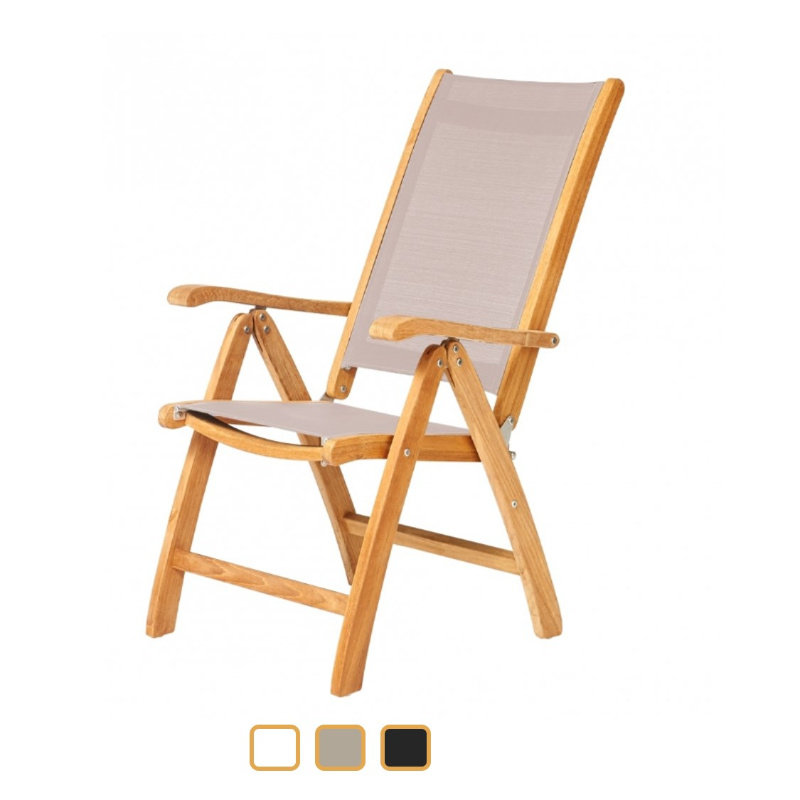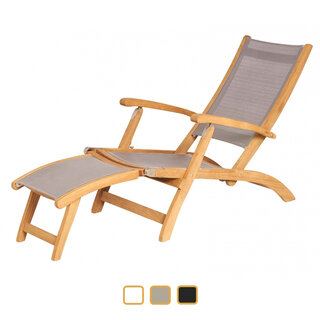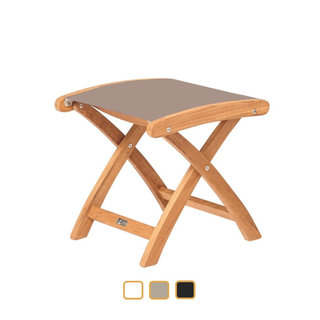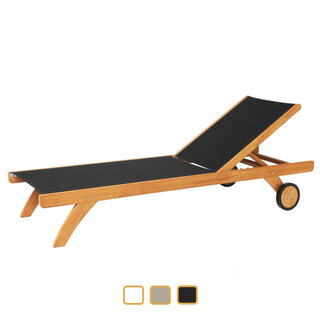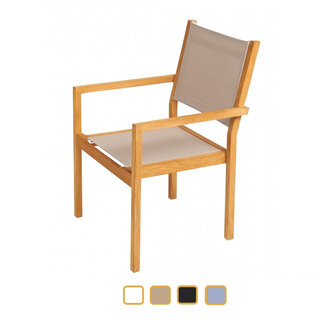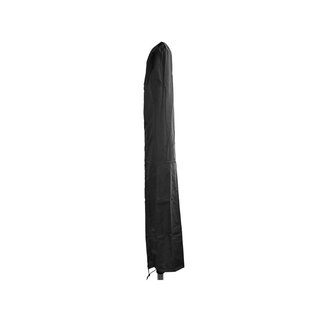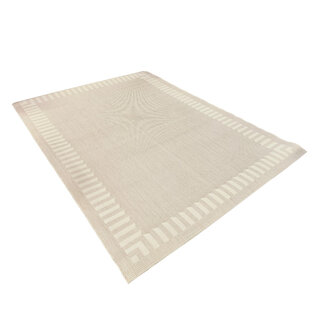Traditional Teak KATE Recliner teak with batyline
The combination of textilene and teak makes the Kate recliner an extremely comfortable recliner with five reclining positions. The chair is light in weight and very functional with a modern look. Like all Kate items in our collection, this recliner is available in the colours: black, white and taupe.
The backrest is adjustable in 7 positions, making it suitable for use around the dining table as well as on a terrace or balcony. This elegant teak garden chair is also a real lightweight and can be placed anywhere quickly and easily and also be completely folded again.
Both the Textilene © and the teak wood are ideal materials for outdoor use and are particularly weather resistant. The polymer fabric, Textilene ©, is PVC coated before being woven and fused together, making it extremely dimensionally stable and durable, even when exposed to heat. The fabric is also UV and color resistant, breathable and quick-drying.
The teak wood used for the Kate recliner comes from sustainably managed plantations and is naturally resistant to rot and mold thanks to the oils it contains. Over time, teak develops a natural silver-grey patina.
Among outdoor enthusiasts and garden enthusiasts, the incomparable quality of teak is highly valued. Teak is resistant to extreme weather conditions, is particularly robust and also has a naturally beautiful appearance that looks particularly stylish.
The Kate recliner is part of the outdoor Kate series of the same name and thus Traditional Teak offers similarly designed stacking chairs, folding chairs and sunbeds for a harmoniously coordinated outdoor space.
Dimensions
The Kate recliner has a width of 55 cm, is 68 cm deep and a total of 116 cm high. This makes it a higher seat. The seat height of the chair is 45 cm.
- Brand: Traditional Teak
- EAN: 7442142095071
- Model Kate recliner
- Model number 95402820
- EAN 7442142095071
- Material teak, batyline
- Color black, beige, white
- Dimensions 55*68*h116cm
- Packaging in cartboard boxes
- Warranty 2 Year on construction and material failure
